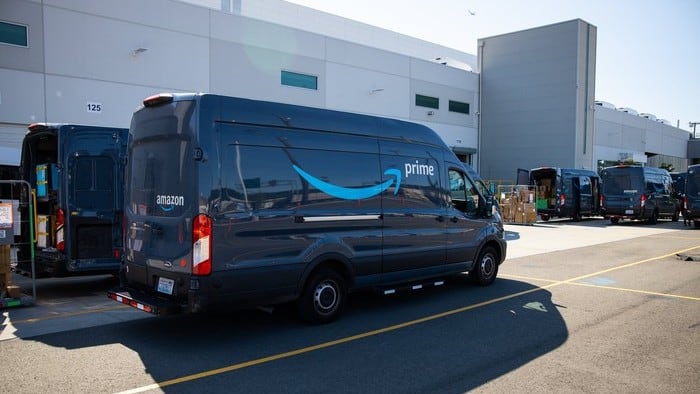This article was originally published on Fool.com. All figures quoted in US dollars unless otherwise stated.
Amazon.com, Inc's (NASDAQ: AMZN) ad business might've been overshadowed in 2020 amid the boom in e-commerce that occurred as consumers stayed home and did more shopping online.
But the ads people see on Amazon's marketplace, Twitch, and its Fire TV platform grew right alongside its retail operations. Through the first 9 months of 2020, Amazon's other revenue line item, which consists primarily of advertising, increased 45%.
That strength is expected to continue into the middle of the decade. Advertisers expect to spend larger and larger percentages of their ad budgets on Amazon ads over the next couple of years, according to a new survey from Cowen. As a result, Amazon will continue taking market share from competitors like Facebook (NASDAQ: FB) and Alphabet's (NASDAQ: GOOG) (NASDAQ: GOOGL) Google.
E-commerce acceleration
One reason for Amazon's growing appeal among advertisers is the acceleration in e-commerce. Marketers want to put their products in front of people where they're most likely to make a purchase. That's increasingly online.
Online sales increased dramatically across the board in 2020, and there are indications that those sales are likely to stay online instead of migrating back into brick-and-mortar stores. Online sales in the US increased an estimated 32.4% last year, according to eMarketer. While growth will likely dip in 2021, it won't go negative, and growth is expected to return to pre-pandemic levels in 2022.
Amazon gets to double-dip on the acceleration in e-commerce. Not only is it the largest online retailer, it also offers prime real estate for advertisers in consumer-packaged goods, electronics, apparel, and more. Amazon.com is the first stop for online product searches for about half of Americans. And those subscribing to Prime start with Amazon nearly three-quarters of the time. So, even if a consumer doesn't end up purchasing from Amazon, an advertiser can get value from showing an ad for its product on Amazon's marketplace.
Less effect from outside influences
Amazon is also in a position of having greater control over its destiny versus Facebook and Google. The competitors are particularly susceptible to Apple (NASDAQ: AAPL), which controls the valuable iOS platform.
Apple's set to launch an iOS update that will require app developers to ask permission to track user data across the web. That could negatively affect Facebook's ability to measure ad efficacy and target advertisements. Facebook stopped reporting what percentage of its ad revenue came from mobile after the third quarter of 2019, when 94% of its ad revenue came from mobile devices.
Meanwhile, Alphabet pays Apple a handsome sum every year to make Google the default search engine on Safari, the web browser built into iOS and macOS. Regulators are questioning that relationship's antitrust implications, which could force some negative changes for Google. Additionally, Apple is reportedly developing its own search engine, which could become the new default. Still, Google is more insulated from changes on Apple's platform thanks to the growth of YouTube and the appeal of Google search over other options.
Amazon, meanwhile, is largely insulated from changes outside of its ecosystem. It owns the Fire TV platform, so not much can change its data usage behavior on that platform that isn't in its control. Meanwhile, it doesn't track much user behavior outside of its own app on mobile, as its advertising products are mostly contained to its marketplace. Amazon has the luxury of tracking ads from impression to conversion all within its own ecosystem, whereas Facebook and Google rely on data coming at least in part from other parties.
Expanding operating margin
Amazon has already shown its potential for high operating margins compared to other retail companies in 2020, as it maximised its warehouse capacity and both shoppers and sellers flocked to its online marketplace. The continued growth of high-margin ad revenue will only expand on that margin potential.
Cowen analysts predict Amazon's advertising business will generate more than $85 billion in 2026. To put that in perspective, Facebook's revenue over the last four quarters totalled less than $80 billion. Moreover, Facebook's operating margin over that period was over 36%. By comparison, Amazon's operating margin in the same period was less than 6%, although that was negatively affected by massive spending on COVID-19-related expenses.
In other words, Amazon could add a Facebook-rate of revenue to its business over the next six years. That will have a considerable effect on its overall operating margin, generating tremendous profits for investors.
This article was originally published on Fool.com. All figures quoted in US dollars unless otherwise stated.









